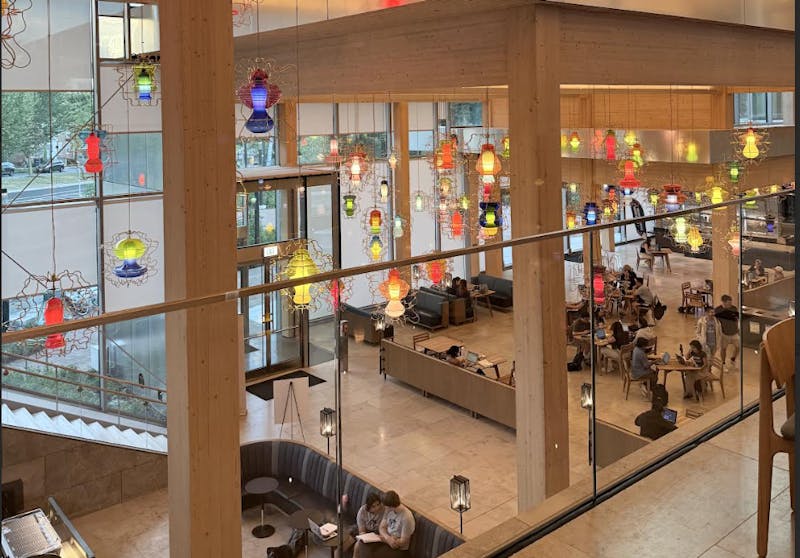Kathryn Jung, a freshman at Hopkins, reflects on the importance of solitude in her early college experience. In a personal account dated October 21, 2025, Jung describes how taking time for herself has enhanced her understanding of both her personal values and her interactions with others.
Stepping outside Remsen 101 at 9:49 a.m., she observes the hustle and bustle typical of a college morning. As students spill out, chatting and enjoying their breakfasts, Jung finds a moment of calm in the chaos. When the clock strikes 9:50 a.m., she enters the classroom, sets up her laptop, and embraces a brief yet significant pause before the next class begins.
This quiet time allows her to appreciate the nuances of campus life. The faded cushions of the classroom seats, the distant sound of footsteps, and the soft chatter of her peers all contribute to an atmosphere that feels both alive and serene. For Jung, these moments are not merely breaks; they are essential opportunities for reflection.
Embracing Solitude Amidst Campus Life
As she strolls across Keyser Quad, Jung takes note of her surroundings—the architectural shapes of the buildings, the texture of the bricks beneath her feet, and the rustling leaves stirred by the wind. Each observation reinforces her belief that there is value in experiencing life without the pressure to constantly engage.
On some days, she carries a small notebook, jotting down her thoughts and experiences. The taste of a sweet iced matcha latte from the café at Brody Learning Commons, the sunlight illuminating a bench, and students playing spikeball become part of her reflective practice. Other days, she simply walks, allowing the rhythm of her surroundings to envelop her.
Reading has become a cherished ritual, with Jung curling up with books that captivate her, unhurried by external demands. She savors favorite snacks, such as oranges, and indulges in warm rooibos tea, embracing the joy of these solitary moments.
Even as she observes her peers rushing to classes and planning social activities, Jung reassures herself that this time alone is not about isolation. Rather, it strengthens her capacity to connect meaningfully with others. After a peaceful morning, she finds that she engages in conversations with greater attentiveness and authenticity.
The Balance of Connection and Self-Discovery
Over the past month at Hopkins, Jung has realized that personal time and social interactions can coexist without conflict. These moments of solitude are crucial for understanding what she values, such as the pleasure of reading slowly and the simple joy of walking without a destination.
Jung expresses that college is not merely a period of constant activity or social engagement. Instead, it offers the freedom to explore one’s own thoughts and feelings. She notes that life gains meaning not only through bustling interactions but also through the small, often overlooked acts of self-care.
Having always been inclined toward a busy lifestyle filled with commitments, her experiences in college have prompted a shift in perspective. Jung emphasizes that the essence of meaningful living lies in how one chooses to spend time alone. There is no need for haste or external validation; instead, the ordinary moments of solitude can be profoundly fulfilling.
In her reflections, Kathryn Jung encapsulates the essence of early college life, illustrating how time spent in quiet contemplation is vital for personal growth and self-awareness. Her journey underscores the importance of finding balance between social connections and nurturing one’s inner self.






































































